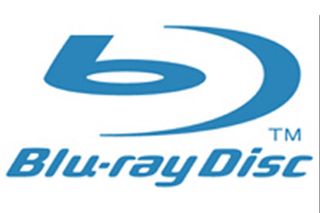Technology 2008: From Blu-ray to Twitter
This year was as good as any for significant technology, and when it comes to mobile internet it was potentially a watershed year. We take a look at some of the technology highlights of 2008.

Blu-ray
The start of the year was marked by the somewhat irritating battle between HD DVD, backed by Toshiba and Microsoft and Blu-ray, backed by Sony and pretty much everyone else. While it looked like a battle that might go on until both knocked each other into irrelevancy, it turned out that the end came rather quickly. At CES 2008, Warner suddenly announced that it was ditching HD DVD and throwing its weight behind Blu-ray. This threw the Toshiba camp into disarray, who promptly cancelled its press conference. Before long other studios were jumping ship and by February, it was all over.
Come Christmas 2008 and the jury is still out on Blu-ray. Only in the last few weeks have sales figures picked up but the signs from the release of Batman, the Dark Knight, which sold 30 per cent of its total on Blu-ray are promising. As faster net speeds are announced it could be likely that Blu-ray will have a far shorter shelf-life compared to DVD.
Solid State Disks (SSDs)
SSDs have been bubbling under for some time but this is the year they really started to hit the headlines. In terms of client side hardware there were three reasons for this the Lenovo X300, the MacBook Air and the Asus Eee PC 900. These all feature SSD drives - with the former and latter it was the only options.
SSDs certainly have their benefits in terms of performance but it's not as totally clear cut as we discovered when we pitched a Traxdata drive against a conventional 2.5in unit.
In April, Intel made some bold claims about the performance of its SSD drives - it's first foray into the technology - and much of it was down to its redesign of the integrated memory controller. By September, it was shipping the drives. It seems Intel has managed to live up to its claims and its drives are now the fastest, but also some of the priciest on the market. Look to next year for prices to start to come down and for SSD to really start to take over.
Get the ITPro. daily newsletter
Receive our latest news, industry updates, featured resources and more. Sign up today to receive our FREE report on AI cyber crime & security - newly updated for 2024.
Intel Atom
While the first big netbook released in 2008 was the Asus Eee PC 900, it wasn't until the release of the MSI Wind, which appeared in July, that netbook fever really began to take off. Atom is Intel's smallest x86 processor and runs up to 1.8GHz, though most netbooks featured the N270 running at 1.6GHz. It offers full PC compatibility and the ability to run full Linux or Windows XP operating systems but at a fraction of the power usage of even Intel's standard low power CPUs. Truth be told, Atom is still relatively slow, and still too power hungry to appear in something like a smartphone, but we could see both issues address in the coming year.
Google Android
Google's move into virtually every sphere of life continued when it announced the Google Android platform for smartphones at the end of 2007. It seemed like a big ask to be able to bring out a finished phone by the end of the following year, but in fact it only took until September for the first Google phone to appear.
Benny Har-Even is a twenty-year stalwart of technology journalism who is passionate about all areas of the industry, but telecoms and mobile and home entertainment are among his chief interests. He has written for many of the leading tech publications in the UK, such as PC Pro and Wired, and previously held the position of technology editor at ITPro before regularly contributing as a freelancer.
Known affectionately as a ‘geek’ to his friends, his passion has seen him land opportunities to speak about technology on BBC television broadcasts, as well as a number of speaking engagements at industry events.





